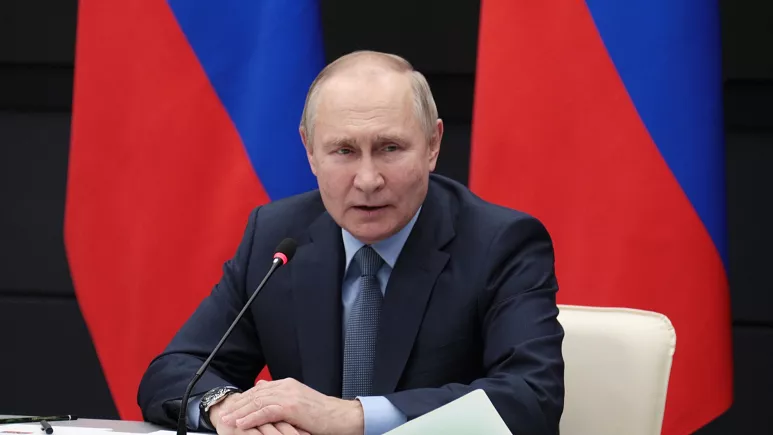Approval of Russia has plunged in neighbouring countries, who are wary of a bullish Moscow which has lost its traditional role as a regional power broker.
Since the beginning of the invasion of Ukraine in February 2022, Russia has lost a significant amount of support in countries which were historically part of its sphere of influence.
A recent Gallup report shows that in many – but not all – states that were once part of the Soviet Union, approval of the Russian leadership took a hit between 2021 and 2022.
This is at odds with what President Vladimir Putin, who seeks to restore “Russian dominance”, possibly wanted to obtain.
In countries like Ukraine, Georgia, and the Baltic states – traditionally warier of Russia as a problematic and often pushy neighbour – approval of the Kremlin has dropped from levels already below 20% to 0% or near 0%.
In countries which have been historically sympathetic to the Russian leadership, like Armenia, Moldova, Kazakhstan and Azerbaijan, the drop in popularity for the Russian leadership has been even more dramatic.
Here more people now disapprove of the Russian leadership than approve of it, reversing a previously opposite trend.
Falls in popularity for Russia in states with complex ethnic situations like Kazakhstan and Moldova have been linked to mounting concerns over possible attempts by Moscow to take over their territories.
In Kazakhstan, the presence of a large ethnic Russian population at the border is cause for concern, as these people are seen as potentially more sympathetic to Moscow than Astana.
Russian peacekeepers in the breakaway region of Transnistria in Moldova have caused fear that Moscow might want to connect the area to its territory if it succeeds in defeating the Ukrainian forces.
Only two countries in Russia’s traditional sphere of influence remain supportive of the Russian leadership – Kyrgyzstan and Uzbekistan.
The percentage of people in these countries disapproving of the Russian leadership decreased between 2021 and 2022, while the percentage of those approving fell.
Yet these changes have not swung the general feeling of overwhelming support towards Moscow, with 63% of the population approving of Kremlin leaders.
Globally, according to the Gallup report, disapproval of the Russian leadership has soared to a median of 57% in 2022. Its approval rate, on the other hand, was 21%.
Russia’s dwindling popularity can also be seen in data reporting the number of people living in the countries with the largest Russian diasporas per capita — Kazakhstan, Latvia and Estonia — who identify as Russians.
Between 2007 and 2009, about three in 10 residents identified as Russian in Kazakhstan (33%), Latvia (30%), and Estonia (29%). In 2022, those identifying as Russians dropped to 15% in Kazakhstan, 19% in Latvia, and 21% in Estonia.
Why has Russian fallen in popularity?
While the invasion of Ukraine can be seen as the determining factor causing popularity to nose dive, there are also other reasons why post-Soviet nations may be unhappy with Moscow.
One is that the invasion of Ukraine has distracted Russia from its traditional role as a regional power broker and chief mediator, Gallup writes, diminishing its importance.
In places like Armenia and Azerbaijan, where Russia has played a key role as a mediator to solve fighting over the disputed region of Nagorno-Karabakh, the Russian leadership’s popularity has suffered significantly.
Another reason is that the war in Ukraine is also seen in some quarters as a chance for post-Soviet nations to carve greater autonomy from a less engaged Russia.
Some of them – including Armenia, Ukraine, and the Baltic states – look more favourably to other superpowers like the US and China.
Gallup has called Russia’s loss of status and prestige in the region where its power and influence have traditionally been the greatest a “seismic shift” which may signal “the twilight of Europe’s last empire.”















